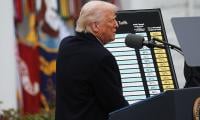will stay.
The TPP would be a boon for factory and export economies like Malaysia and Vietnam. Anticipated tariff perks are already luring record foreign investment into Vietnamese manufacturing and both countries are expected to see increased demand for their key exports, from palm oil and rubber to electronics, seafood and textiles.
That could put pressure on several of Asia's major developing economies, including the Philippines and Indonesia, which have recently expressed interest in signing up to the pact.. Thailand said it was studying the deal and may consider joining.
Japan has pledged to ease trade barriers on imported French fries and butter - products which have been in short supply in the Asian market - while Malaysia will eliminate tariffs on all imported alcohol for the first time in a trade agreement.
Other firsts cited by the partners - Australia, Brunei, Canada, Chile, Japan, Malaysia, Mexico, New Zealand, Peru, Singapore, the United States and Vietnam - include the first commitments to discourage imports of goods produced by forced labor and to adopt laws on acceptable working conditions, and the first prohibition on harmful fisheries subsidies.
A person in a supermarket in cuba. —AFP/FileHAVANA: In communist Cuba, some customers are more equal than others, as...
In this image, a man can be seen working in a textile factory in Pakistan. — AFP/FileLAHORE: LAHORE: International...
General view as people queue up outside a Nike shop close to the stadium before the match. —Reuters/FileNEW...
Labourers are busy in their work at brick kilns, as International Labour Day is celebrated on May 1 every year on May...
Figurines with computers and smartphones are seen in front of the words "Artificial Intelligence AI" in this...
People walk by newsstand, amid the opposition's calls for a mass economic boycott following the arrest of Istanbul...







